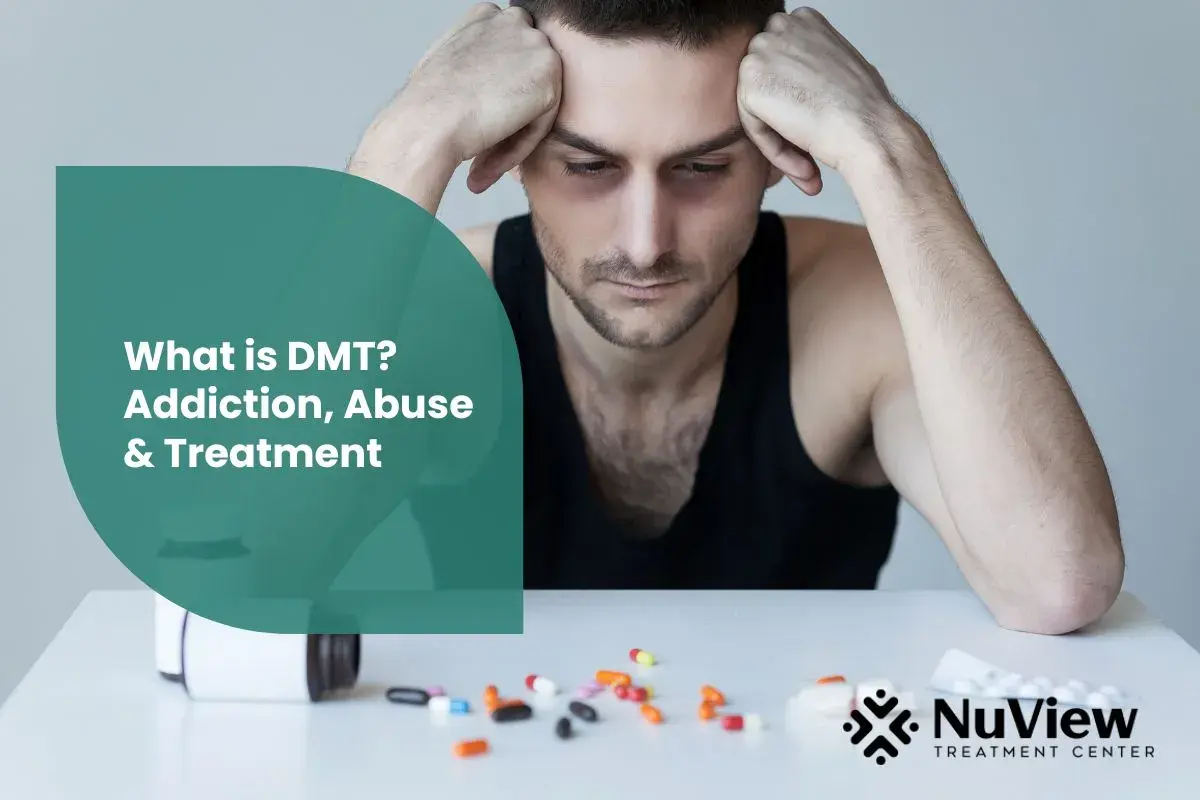Nicotine addiction or a tobacco use disorder is when you have trouble stopping tobacco use. Nicotine is a chemical commonly found in tobacco; it produces a high or a rush of pleasant sensations and feelings. Now, these feelings are very temporary, but the damage that tobacco use can lead to is lasting.
Tobacco use disorder can seem like a severe condition, with many unwanted effects, serious health risks, and a low quality of life. However, on the other side of this is hope. Hope for recovery. If you are struggling with tobacco use, then the first step to recovery is information. We hope that with this blog, you can find the hope and knowledge you need to make informed choices with regard to your recovery.
Why Does Nicotine Dependence Occur?
Nicotine is a stimulant that gives rise to heightened feelings of excitement, exhilaration, and well-being, which is why nicotine is addictive. Nicotine is available on its own, but it is commonly found in tobacco products like cigarettes, cigars, pipes, hookah, e-cigarettes, and more.
Nicotine affects the dopamine levels in the brain, which gives rise to pleasing, rewarding effects that make you want to reach out for more again and again. Soon, your body gets used to nicotine and cannot function properly without it. This is what is known as “nicotine dependence,” and it often leads to a tobacco use disorder, which is a kind of substance use disorder.
Nicotine dependence is of two types - physical dependence and psychological dependence.
- Physical Dependence: If your body does not receive its regular dose of nicotine, you begin to experience withdrawal symptoms. These are discomforting feelings like restlessness and frustration.
- Psychological Dependence: This is the persistent need for nicotine to carry on with day-to-day activities.
Get Started With Nuview Treatment Center
Our dedicated professional staff is here to guide you or your loved one on the journey to lasting recovery, offering support every step of the way.
What Are the Signs and Symptoms of Nicotine Dependence?
Nicotine dependence develops very quickly, as nicotine is a highly addictive substance, and your body keeps needing more and more of it. Therefore, some of the nicotine addiction symptoms you need to watch out for are as follows:
Smoking Is Very Difficult to Quit: Even if you have made the effort to quit smoking, you may not be able to do so.
Cognitive Dissonance: You know that smoking is bad for health, but despite this, you continue smoking despite its adverse consequences on your physical and mental health.
Nicotine Tolerance: You need larger quantities of nicotine to experience the desired effects and feel content.
Withdrawal Symptoms: When the body gets used to nicotine, a lack of nicotine can give rise to very unpleasant feelings. These can range from cravings, irritability, frustration, agitation, lowered mood, wakefulness, insomnia, and hunger, to diarrhea.
Prioritizing nicotine consumption. You tend to prioritize nicotine use over everything else in life to the point that you jeopardize your interpersonal relationships, studies, and career, and give up on other activities you enjoyed, like social activities.
Nicotine dependence is a challenging condition to live with. When you are unable to quit smoking despite its adverse impacts on your life, it is an indication that you can benefit from professional, comprehensive nicotine treatment. Yes, nicotine dependence is a manageable condition, and you can reclaim control of your life from the grip of nicotine. Take the first step and reach out to nearby licensed and trained mental health practitioners who can better direct you toward recovery.
What Are the Causes of Nicotine Dependence?
To understand the underlying reasons behind nicotine dependence, you first need to know that nicotine in and of itself is a very addictive substance that can lead to dependence very quickly. So, while nicotine is the main cause of nicotine dependence, there are certain risk factors that can make some more prone to it than others:
- Genetics - Genes play a role in how the receptors in your brain respond to nicotine. Some are more sensitive than others, which can increase the likelihood of nicotine dependence.
- Environment - If a person has grown up with a family or friends who use nicotine, then it is likely that they are also going to take up smoking themselves, leading to nicotine dependence.
- Mental Health Challenges - If a person struggles with mental health challenges, like anxiety or depression, then they have a higher chance of misusing nicotine as a way to alleviate the suffering.
- Other Substances - The use of other substances, like alcohol or cannabis, can also lead to higher rates of tobacco use.
What Are the Complications of Nicotine Dependence?
Nicotine dependence is a severe condition that can lead to many risks, some of which are as follows:
- Lung Cancer - The biggest risk of nicotine is lung cancer, as cigarette smoking happens to be the leading cause of lung cancer.
- Other Cancers - While lung cancer is the most widely recognized risk, nicotine dependence increases the risk of other cancers, like the cancer of the mouth, throat, larynx, esophagus, and even kidney and pancreas, among others.
- Tooth and Gum Problems - Smoking inflames the gums and leads to gum infections. It can also lead to tooth concerns, especially periodontitis - an inflammation of tissues and bone surrounding the teeth.
- Diabetes - Smoking gives rise to insulin resistance, which increases the risk of type 2 diabetes.
- Heart Diseases - Smoking leads to an increased risk of developing cardiovascular diseases, even those as severe as a heart attack and/or stroke.
- Sexual Dysfunctions - Smoking increases the risk of impotency in men and infertility in women.
- Pregnancy-Related Complications - Smoking can increase the chances of preterm delivery and also lower birth weight among babies.
Perhaps the heartbreaking thing about smoking is not that it is only dangerous to you, but also to those around you. The reason for this is secondhand smoke, which is the smoke you exhale while smoking. As you may overly rely on cigarettes and other tobacco products for your regular dose of nicotine, inhaling secondhand smoke can increase the risk of lung cancer and heart conditions even among those who live around you, like your loved ones. Therefore, seeking treatment for nicotine dependence becomes all the more crucial as it protects even those you love from the ill effects of nicotine.
Get Started With Nuview Treatment Center
How Is Nicotine Dependence Diagnosed?
A diagnosis of nicotine dependence is the first step to treatment. Your healthcare providers may ask you questions regarding the number of cigarettes you smoke each day, how soon you smoke after waking up, your withdrawal symptoms, and your general lifestyle to understand how dependent you are on nicotine. They may even ask you to fill out a questionnaire regarding your tobacco use. This will ensure your healthcare providers can personalize your treatment plans to your needs and goals so that they are as effective as they are relevant and unique to you.
What Is the Treatment for Nicotine Dependence?
Treatment for nicotine dependence involves behavioral therapies and medication, which have very high success rates. Motivational interviewing, cognitive behavioral therapy, and mindfulness therapy are the most commonly used therapies for nicotine dependence.
Therapy and supportive counseling are provided in both individual and group settings so that you can uncover and change the underlying reasons leading to nicotine/tobacco use and develop the tools you need to quit smoking. You also get to learn from your peers, even as you motivate them toward the same.
Medication management is also widely used to treat nicotine dependence:
- Nicotine Replacement Therapy is when you are prescribed over-the-counter medications like gums, lozenges, and patches to stimulate the brain in the same way as it responds to nicotine. However, these do not contain nicotine, hence they are not as dangerous.
- Bupropion is a medication that decreases dopamine and norepinephrine absorption levels, while varenicline stimulates alpha-4 beta-2 nicotinic receptors in the brain to reduce nicotine cravings.
While there are plenty of scientifically-backed nicotine treatment options available for you, there are also certain methods that have been masquerading as tried and tested nicotine treatment, however, they can be just as dangerous as tobacco use. Some such products you need to avoid are smokeless tobacco, dissolvable tobacco products, and nicotine lollipops/balms.
Do you wish to know more about why nicotine is as addictive as it is and how you can recover?
Call NuView today at (323) 307-7997 or email us at info@nuviewtreatment.com.
Frequently Asked Questions
Is nicotine a drug?
Yes, nicotine is a drug - a psychoactive substance present in tobacco.
What does nicotine do?
Nicotine is a stimulant that gives rise to a high or a rush of pleasurable feelings as it affects the dopamine levels in the brain. This is why people tend to keep coming back for more and more.
Does nicotine keep you awake?
Yes, nicotine is a stimulant, which means it works by stimulating your central nervous system. One of the unwanted effects of this is that it interferes with your sleep-wake cycle and leads to sleep troubles.
Is nicotine harmful on its own?
Nicotine is harmful on its own; it increases adrenaline and blood pressure, which can lead to a heart attack as well. However, when combined with tobacco, it becomes addictive.
Why is nicotine addictive?
Nicotine is addictive because it affects the reward center of your brain and releases feel-good chemicals like dopamine and norepinephrine. These lead to pleasurable feelings, which is why nicotine is as addictive as it is, as people want to experience more of such feelings.
How long does it take nicotine to reach your brain?
When nicotine enters the body, it quickly gets absorbed into the bloodstream and is distributed throughout the body. It then crosses the blood-brain barrier and reaches the brain within 10 to 20 seconds.
Can your brain recover from nicotine addiction?
The brain can recover from nicotine addiction. While it can feel discomforting at the beginning, recovery can become your tangible reality.
Can nicotine dependence be cured?
Nicotine misuse and dependence are treatable conditions. They can be treated with behavioral therapies and FDA-approved medication.
- Why Does Nicotine Dependence Occur?
- What Are the Signs and Symptoms of Nicotine Dependence?
- What Are the Causes of Nicotine Dependence?
- What Are the Complications of Nicotine Dependence?
- How Is Nicotine Dependence Diagnosed?
- What Is the Treatment for Nicotine Dependence?
- Frequently Asked Questions
- Why Does Nicotine Dependence Occur?
- What Are the Signs and Symptoms of Nicotine Dependence?
- What Are the Causes of Nicotine Dependence?
- What Are the Complications of Nicotine Dependence?
- How Is Nicotine Dependence Diagnosed?
- What Is the Treatment for Nicotine Dependence?
- Frequently Asked Questions
Get Help Today!
Everyone is Welcome Here and We All Have Your Back
Your healing journey deserves a personalized approach. At NuView, we integrate expertise in behavioral therapy, mental health, and substance use treatment to create a customized recovery plan tailored to your unique needs.
Connect with our Admissions Specialists today.







Written By
Dr. Ryan Peterson